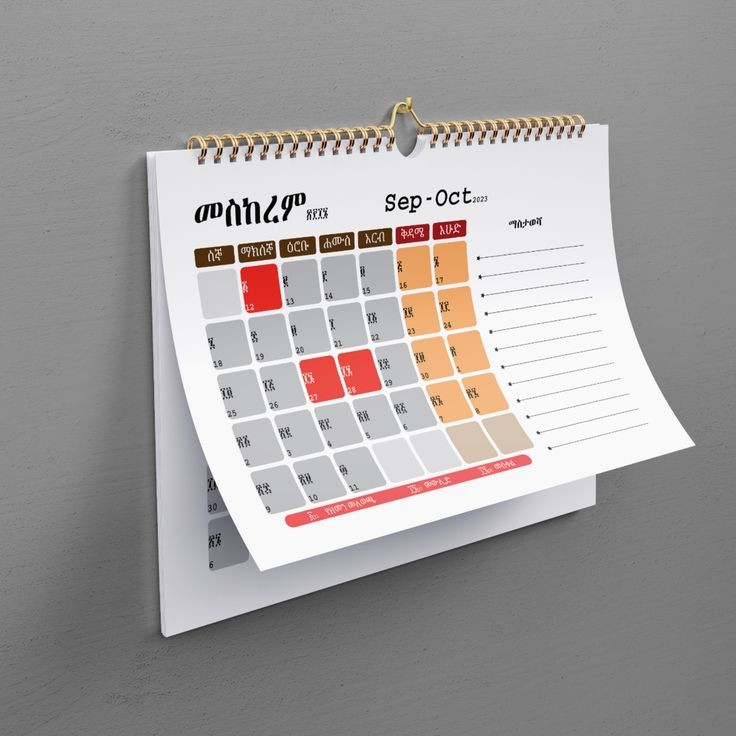The Ethiopian calendar, unlike the more commonly known Gregorian calendar, is a fascinating and distinct system that reflects Ethiopia’s rich cultural and religious heritage. Let’s delve into the details of this unique calendar and understand how it differs from the one we commonly use.
What Year Is It in Ethiopia?
In Ethiopia, the current year is 2014 according to the Ethiopian calendar. This might seem surprising, as the rest of the world is in 2024. The reason for this discrepancy lies in the different starting points of the two calendars. While the Gregorian calendar is based on the birth of Jesus Christ, the Ethiopian calendar calculates years from the Annunciation, when the angel Gabriel is said to have announced to the Virgin Mary that she would conceive and bear a son, Jesus.
The Ethiopian calendar is structured differently from the Gregorian calendar. It consists of 13 months: 12 months with 30 days each and a 13th month, Pagumē, with either 5 or 6 days, depending on whether it is a leap year. This arrangement results in a year that is approximately 7-8 years behind the Gregorian calendar.
Similarities to Eastern Christianity
The Ethiopian calendar is not just a system for measuring time; it also reflects Ethiopia’s ties to Eastern Christianity.
Eastern Christianity encompasses a group of Christian traditions and churches that developed in the Eastern part of the Roman Empire, including the Ethiopian Orthodox Church. These churches have distinct theological, liturgical, and cultural traditions that differ from those of Western Christianity.
Eastern Christianity places a strong emphasis on mysticism, iconography, and the teachings of the early Church fathers. The Ethiopian calendar’s alignment with Eastern Christianity is evident in its structure and its use as a marker of significant religious events.
The Ethiopian calendar is a testament to Ethiopia’s unique cultural and religious heritage. Its divergence from the Gregorian calendar highlights the country’s ties to Eastern Christianity and its rich history. As we navigate the complexities of timekeeping and cultural diversity, the Ethiopian calendar stands out as a fascinating example of how different cultures perceive and measure time.

Leave a Reply
You must be logged in to post a comment.